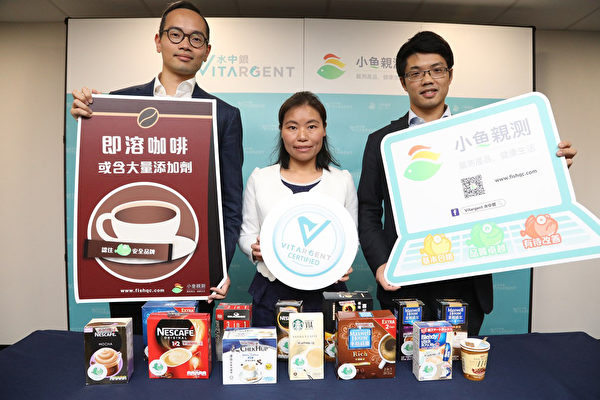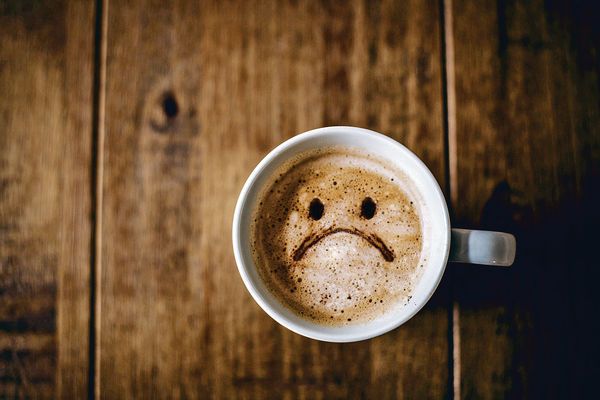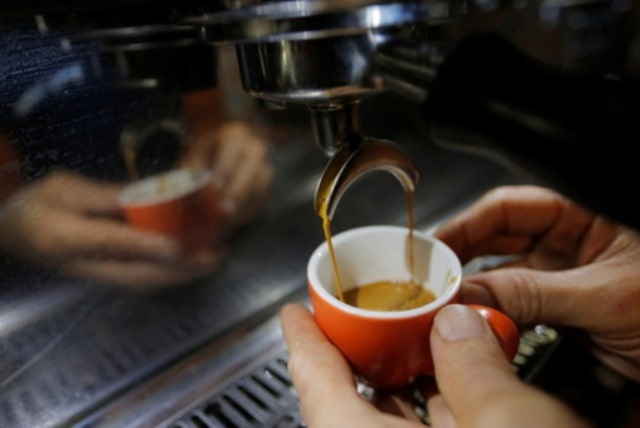Instant coffee is 90% additives! The toxicity is 1.8 times higher than that of freshly ground coffee!
For professional baristas, please follow the coffee workshop (Wechat official account cafe_style)
It was found that 10 instant coffee samples failed the biotoxicity test.
There are biotech companies testing 30 instant coffee samples from 11 brands. It was found that instant coffee was 1.8 times more toxic than chain coffee, and as many as 33% of the samples failed the toxicity test. The survey also found that the coffee content in most samples accounted for only 5-9% of the total ingredients, which was not the source of toxicity. It was inferred that the toxicity mainly came from the remaining 90% of beverage additives, including stabilizers, emulsifiers, anti-coagulants, seasonings and so on.

Silver in the water tested a total of 30 instant coffee samples from 11 brands, more than half of them failed the safety test, and the bottom test found that most of the samples contained only 5% to 9% of the coffee ingredients, and most of the rest were various additives.
In May this year, Shuizhongyin (International) Biotechnology Co., Ltd. purchased 11 brands and 30 samples of instant coffee from supermarkets and online, including well-known brands such as Starbucks, Nestle and Maxwell. "genetically modified mackerel mackerel" and "zebrafish" were used for embryonic toxicity test. according to the test results, the safety properties of the products were divided into three categories: green fish (excellent quality), yellow croaker (basically qualified) and red fish (to be improved). Earlier, the biotech company tested the edible oil and BB cream on the market with relevant embryo tests.

13 samples were rated as green fish (excellent quality) in the test, but the company refused to disclose the sample data of "yellow croaker" and "red fish".
Foam coffee is the least safe.
The results showed that of the 30 samples, 13 samples were rated as green fish, 7 samples as yellow croaker and the remaining 10 samples as red fish, meaning that as many as 33% of the samples failed the toxicity test. The test also found that the toxicity level of instant coffee was 1.8 times higher than that of chain coffee, of which the overall safety of soluble foam coffee (Cappuccino) was the lowest, and more than half of the samples failed the safety test. Nearly 90% of the tested samples are dominated by food additives, including the most common cream (plant fat powder), granulated sugar, emulsifiers and stabilizers, and the coffee content in some test samples accounts for only 5% to 9% of the total ingredients.

Mr. du Weiliang, CEO of Silver in Water, said that data analysis showed that the average additive composition of foamy coffee reached 15, ranking first among instant coffee, followed by white coffee with an average of 11. It is inferred that the more the number of food additives, the lower the number of samples that pass the test. On the ingredient label of instant coffee, vegetable fat powder is often at the top of the list, which mostly contains hydrogenated fat and trans fat. In recent years, scientific research has confirmed that trans fat is associated with Alzheimer's disease, infertility, breast cancer, prostate cancer, and so on.
The most common additive in instant coffee is the instant-soluble "plant fat powder" (cream), which contains more hydrogenated fat and trans fat. Chen Yixian, a cardiologist, pointed out that at present, the medical profession has "zero tolerance" for trans fats because it can reduce beneficial "high density lipoprotein cholesterol" and increase "low density lipoprotein cholesterol", which has a negative impact on health. He believes that if the product contains relevant ingredients, the public "should not drink a cup." According to WHO recommendations, trans fat intake should not exceed 2.2 grams per person per day.

The nutrition labels of some test samples show that each packet contains up to 19 grams of sugar, and in terms of three meals a day, sugar intake is likely to exceed the daily limit of 50 grams recommended by the WHO. Eight samples had sugar levels ranging from 6 to 10 grams per 100 milliliters, exceeding the CFS guidelines of 5 grams per 100 milliliters.
Mr to reminded consumers that when buying instant coffee in the market, they should pay more attention to the nutrition and ingredient labels on the packaging and choose products with less sugar and additives as far as possible.

The average toxicity of instant coffee is 1.8 times higher than that of chain coffee.
European sample is the best and Southeast Asia is the worst.
The test took samples from four regions with raw materials originating in East Asia, Southeast Asia, South America and Europe. Among them, the European region performed well, and 100% of the samples were green fish. The overall performance of Southeast Asia was the least satisfactory, accounting for only 30% of green fish.
The average price of the 30 samples collected is HK $4 per package, with a minimum price of HK $1 and a maximum of HK $11.4 per package, with a difference of 11 times. However, according to the test results, the samples with high prices are mixed, and there is no inevitable law that "the more expensive, the safer". On the contrary, the samples with medium prices perform better in the test.
Important Notice :
前街咖啡 FrontStreet Coffee has moved to new addredd:
FrontStreet Coffee Address: 315,Donghua East Road,GuangZhou
Tel:020 38364473
- Prev

Missy Intelligent Robot Cafe, it is an intelligent coffee shop with new retail concept.
Following Cafe comments (official Wechat account vdailycom) found that Beautiful Cafe opened a small shop of its own. Since Alibaba's unmanned supermarket TAOCAFE was unveiled in Hangzhou, various media have been competing to report it. For a moment, news and headlines have gone viral in moments. Open 24 hours a day, without a cashier or shop assistant, scan the code into the store, pick it up and go, automatically deduct the money.
- Next

Drink coffee with two teachers, Fan Bingbing and Li Jian
Following Cafe (Wechat official account vdailycom) found that Beautiful Cafe opened its own shop in July 2017. In Hunan Satellite TV's "every Day up" program in July 2017, Fan Bingbing presented a magic weapon that shocked stars such as Wang Han, Qian Feng, Odi, Da Zhang Wei and so on. What is it? Bing Bing said there is nothing in heaven and earth! Oh, so this is the STARESSO Star extraction Cup Portable Coffee Machine.
Related
- Can I make coffee a second time in an Italian hand-brewed mocha pot? Why can't coffee be brewed several times like tea leaves?
- Hand-brewed coffee flows with a knife and a tornado. How to brew it? What is the proportion of grinding water and water temperature divided into?
- What is the difference between Indonesian Sumatra Mantinin coffee and gold Mantinin? How to distinguish between real and fake golden Mantelin coffee?
- What does bypass mean in coffee? Why can hand-brewed coffee and water make it better?
- Unexpected! Ruixing Telunsu lattes use a smoothie machine to foam milk?!
- % Arabia's first store in Henan opens into the village?! Netizen: Thought it was P's
- Does an authentic standard mocha coffee recipe use chocolate sauce or powder? Mocha Latte/Dirty Coffee/Salty Mocha Coffee Recipe Share!
- What is the difference between Vietnam egg coffee and Norway egg coffee? Hand-brewed single product coffee filter paper filter cloth filter flat solution!
- What is the difference between sun-cured and honey-treated coffee? What are the differences in the flavor characteristics of sun-honey coffee?
- How to make Italian latte! How much milk does a standard latte use/what should the ratio of coffee to milk be?

